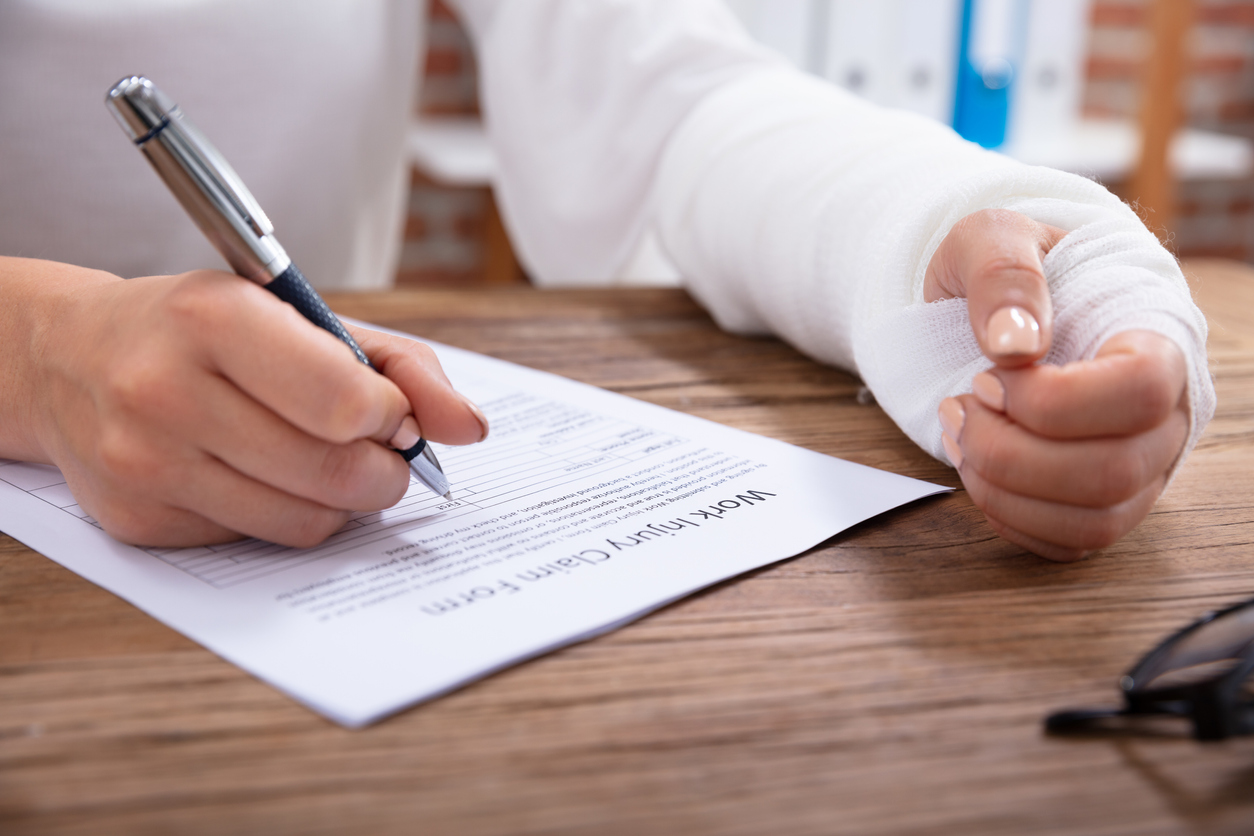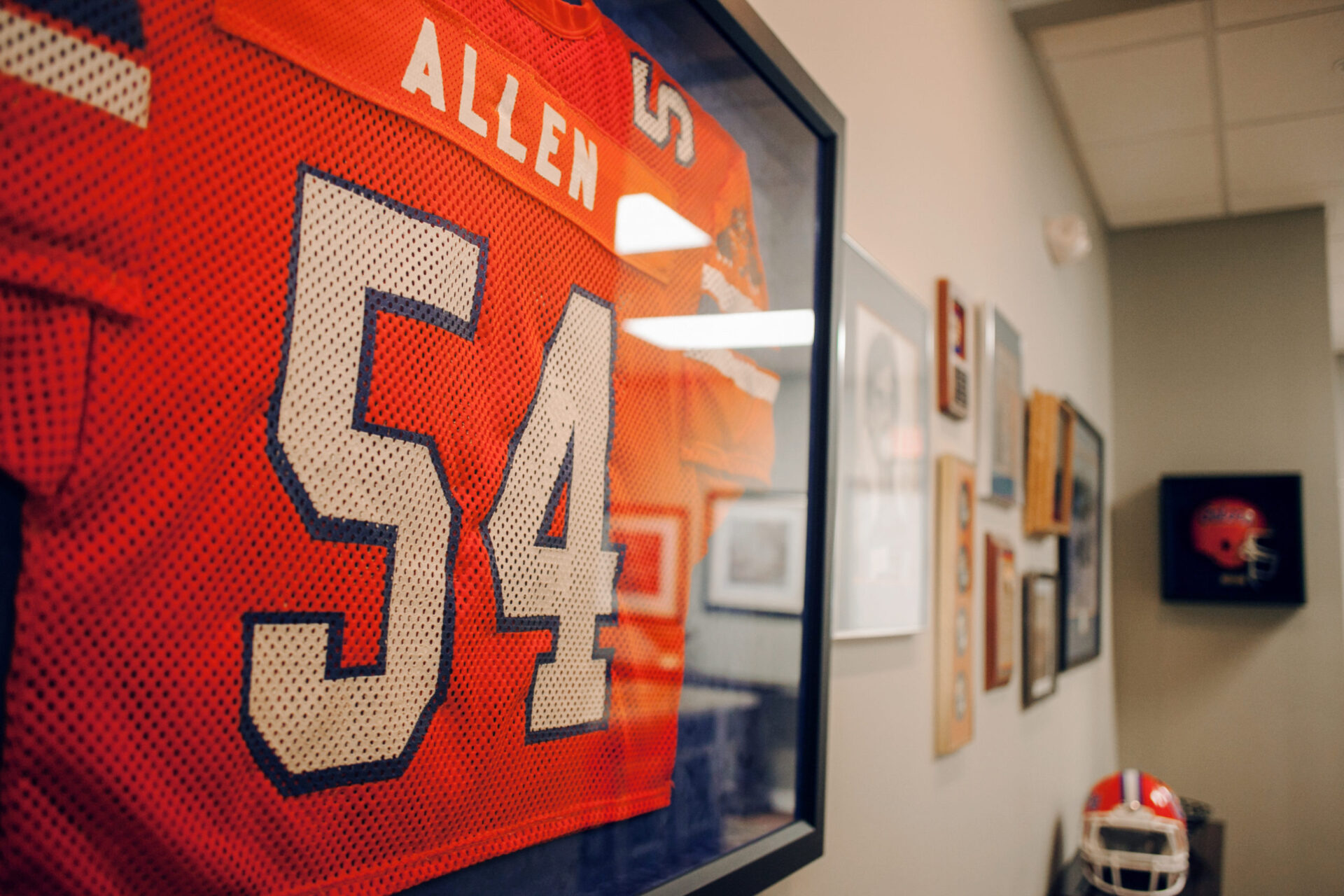Should I File a Workers’ Comp or Personal Injury Claim in Florida?
Bill Allen | January 8, 2023 | Personal Injury \ Worker’s Compensation

Being injured at work can create financial stress in addition to the pain and suffering caused by the injury. If you were injured on the job, you might wonder whether to file a workers’ comp claim or a personal injury claim. In some cases, you can do both.
Before you assume your only option is to file a claim through the workers’ compensation system, talk with a Gainesville workplace accident lawyer. You could be entitled to additional compensation for a work injury by filing a personal injury claim in addition to your workers’ comp claim.
Workers’ Compensation Protects Injured Workers in Florida
Most work-related injuries in Florida are covered by workers’ compensation insurance. Workers’ compensation is a no-fault system.
An injured employee does not need to prove fault or negligence to qualify for benefits. With very few exceptions, work injuries that occur during the ordinary course of employment are covered.
Workers’ compensation benefits include medical treatment at no expense to the injured employee. The worker can also receive disability benefits if they are unable to work because of their injuries.
However, injured workers cannot sue their employers for work-related injuries in most cases. That is the trade-off for receiving benefits without the need to prove fault or negligence.
Unfortunately, workers’ compensation benefits do not fully compensate injured employees for all losses and damages caused by a work injury. For example, wage benefits only cover a portion of the lost income from an accident at work. Furthermore, workers’ comp does not compensate injured employees for pain and suffering and other non-economic damages.
For that reason, injured workers might want to consult a lawyer about filing a personal injury claim. Also known as third-party claims, these cases can provide additional compensation for damages not covered by workers’ comp.
Filing a Personal Injury Claim for a Work Injury in Florida
You might have a cause of action against a third party for a work-related injury. If so, you can file a personal injury claim against the third party even though workers’ comp covers your injury. A personal injury claim can result in additional compensation for damages not covered by workers’ compensation.
Instances where a personal injury lawsuit might apply to a work-related accident include, but are not limited to:
- A worker is injured in a car accident caused by another person while the worker is performing work-related duties.
- The injury involves exposure to an illegal, hazardous, or toxic substance.
- A defective product caused the worker’s injury.
- The injury resulted from the negligence of a third party who does not work for the employer.
- The employer failed to provide required workers’ compensation insurance coverage.
- The employer committed an intentional tort that resulted in the worker’s injury.
- A worker is injured while performing a job on a customer’s property because of the customer’s negligence.
- An employee was injured in a slip and fall accident because of a property owner’s negligence.
A personal injury case for a workplace injury could include claims against manufacturers, contractors, individuals, property owners, and other third parties. In addition, the employer could be sued for a workplace accident in very limited situations.
Proving Fault in a Workplace Accident Claim
A primary difference between workers’ comp and personal injury claims is proving fault. In a personal injury claim, you must prove that the other party’s negligence or wrongdoing caused your injury.
In most cases, you must prove the legal elements of a negligence claim:
- The third party owed you a legal duty of care
- The third party breached the duty of care through their actions or failure to act
- The breach of duty was the proximate and direct cause of your injury
- You sustained damages because of the third party’s breach of duty
In a few cases, strict liability could apply. For example, most product liability claims are based on strict liability. You must prove that the product was defective and the defect caused your injury, but you do not need to prove that the manufacturer intended to harm you.
Establishing liability requires you to have sufficient evidence proving causation and fault. A Gainesville workplace accident attorney will evaluate your case to determine if you have grounds to file a personal injury lawsuit. The attorney will then gather evidence and build a case proving fault and liability.
What Damages Can I Receive If I File a Personal Injury Claim for a Workplace Injury?
Another crucial difference between a workers’ comp and personal injury claim is the type of damages you can receive. Once you prove your personal injury case, you can receive compensation for all economic damages incurred due to the workplace injury.
For example, you can demand full reimbursement and compensation for all:
- Medical bills and expenses, including the cost of rehabilitation and physical therapy
- Loss of income, wages, and benefits
- Out-of-pocket expenses
- Expenses related to assistance with household chores and personal care
- Diminished future earning capacity
Additionally, you can demand compensation for non-economic damages. These damages are not available in a workers’ comp case. Pain and suffering damages can substantially increase the amount of money you receive for a work injury.
Examples of non-economic damages in a workplace accident claim include:
- Physical discomfort and pain
- A decrease in quality of life
- Emotional distress
- Loss of enjoyment of life
- Scarring and disfigurement
- Mental anguish and trauma
- Disabilities and impairments
You could also be entitled to future damages if you sustain a permanent impairment or disability. Future damages pay for ongoing medical care, long-term nursing care, future lost wages, and continued suffering.
Some injured workers could also be entitled to punitive damages in a personal injury claim. Punitive damages do not compensate an injured party for their losses. Instead, juries award punitive damages to punish defendants for egregious behavior.
Does Comparative Fault Apply in Florida Workplace Accident Claims?
Unlike workers’ compensation claims, allegations of comparative fault apply in personal injury cases involving workplace injuries. Therefore, if you are partially to blame for causing your workplace injury, the amount of money you receive for your claim can be reduced by your percentage of fault.
For example, suppose a jury finds that you were 40% to blame for a slip and fall injury at work. You would only receive 60% of the value of your damages. Therefore, if the jurors awarded you $100,000 for your damages, you would receive $60,000.
Personal injury claims for work injuries have the same statute of limitations as other personal injury cases. Therefore, it is always a good idea to seek legal advice from a lawyer as soon as possible to avoid losing your right to sue a third party for damages.
Contact Our Gainesville Personal Injury Law Firm in North Central Florida
If you need legal assistance, contact the Gainesville personal injury lawyers at Allen Law Firm at your nearest location to schedule a free consultation today.
We have three convenient locations in North Central Florida:
Allen Law Firm, P.A. – Gainesville office
2550 SW 76th St #150
Gainesville, FL 32608
(877) 255-3652
Allen Law Firm, P.A. – Downtown Gainesville
621 W University Ave
Gainesville, FL 32601
(866) 928-6292
Allen Law Firm, P.A. – Ocala Office
112 S Pine Ave
Ocala, FL 34471
(352) 351-3258
